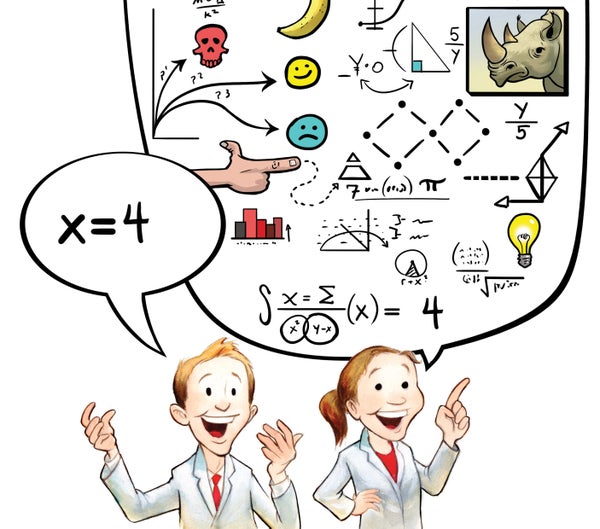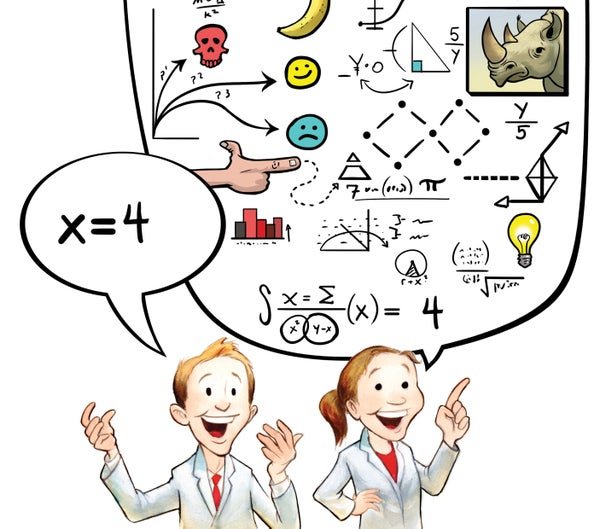October 15, 2024
4 min read
Contrary to Occam’s Razor, the Simplest Explanation Is Often Not the Best One
Occam’s razor holds that the simplest explanation is closest to the truth. But the real world is quite complex

If you’ve ever hung around scientists, you’ve most likely at some point heard one of them say “the best explanation is the simplest one.” But is it? From the behavior of ants to the occurrence of tornadoes, the natural world is often quite complex. Why should we assume the simplest explanation is closest to the truth?
This idea is known as Occam’s (or Ockham’s) razor. It’s also referred to as the “principle of parsimony” or the “rule of economy.” And it bears a family relationship to the “principle of least astonishment,” which holds that if an explanation is too surprising, it’s probably not right. But real life is often messy and complicated, and, as every good detective novelist knows, sometimes the killer is the one you least expect.
Let’s start with some evidence about the idea itself. The name comes from William of Ockham, a 14th-century scholastic philosopher and theologian who formulated the principle in Latin: pluralitas non est ponenda sine necessitate, rendered in English as “entities should not be multiplied beyond necessity.” The point was an ontological argument dating back at least as far as Aristotle’s time about entities: What exists in the world? How do we know they exist? The philosophical claim is a form of ontological minimalism: we should not invoke entities unless we have evidence that they exist. Even if we are sure things exist—say, comets—we should not invoke them as causal agents unless we have evidence that they cause the kinds of effects we are assigning to them. In other words: don’t make stuff up.
On supporting science journalism
If you’re enjoying this article, consider supporting our award-winning journalism by subscribing. By purchasing a subscription you are helping to ensure the future of impactful stories about the discoveries and ideas shaping our world today.
In 1687 Isaac Newton expanded on this notion with his concept of a vera causa—a true cause—when he wrote in his best-known work, the Principia Mathematica, “We are to admit no more causes of natural things than such as are both true and sufficient to explain their appearances.” He continued: “To this purpose, the philosophers say that Nature does nothing in vain, and more is in vain when less will serve; for Nature is pleased with simplicity, and affects not the pomp of superfluous causes.”
Newton was one of the greatest scientists of all time, but if we stop to think about it, this claim is a peculiar one. Who is to say what “pleases nature”? And doesn’t this guidance assume we know what we are in fact trying to figure out?
Consider the work of astronomer Vera C. Rubin, who found compelling evidence for the existence of dark matter. While studying the motion of spiral galaxies, Rubin discovered that the speed at which stars rotated around the center of their galaxies made sense only if these galaxies contained an additional mass weighing about 10 times more than the visible stars. The claim of a new form of “dark” matter—unseen and unseeable and present in far greater quantities than the visible matter of the universe—was not a simple explanation, but it turned out to be the best explanation.
Physics is filled with explanations that are surprising, unexpected and hard to get your head around. Newton explained light as being made of particles, whereas other scientists of his era explained it as a wave. Quantum mechanics, however, tells us that light is, in some respects, both a wave and a particle. Newton’s account was simpler, but modern physics tells us that the more complex model is closer to the truth.
When we turn to biology, things get even more complicated. Imagine two smokers, both of whom went through a pack a day for 30 years. One gets cancer; the other does not. The simplest explanation? For decades the tobacco industry’s answer was that smoking doesn’t cause cancer. Simple but false. The correct answer is that disease is complex, and we don’t yet understand all the factors involved in carcinogenesis.
And then there’s the vexing question of how we define simplicity. Consider the ongoing debate over the origin of the COVID pandemic. On the side of the lab-leak theory—that the SARS-CoV-2 virus escaped from a facility rather than being transmitted from wild animals to humans—some commentators have invoked Occam’s razor. But it’s not obvious that this theory is simpler. One could argue the reverse: given that most past pandemics had a zoonotic origin, the simpler explanation is that this pandemic did, too.
Occam’s razor is not a fact or even a theory. It’s a metaphysical principle: an idea held independently of empirical evidence. (Think “God is love” or “beauty is truth.”) But unless we are prepared to make assumptions about God and nature, there is no good reason that we should prefer a simpler explanation to a complex one. Moreover, in human affairs things are more often than not complex. Human motivations are typically multiple. People can be good and bad at the same time, selfish and selfless, depending on circumstances. The shelves of ethicists are filled with books pondering why good people do bad things, and their answers are rarely short and sweet.
In 1927 British geneticist J.B.S. Haldane wrote in his essay “Possible Worlds” that “the universe is not only queerer than we suppose, but queerer than we can suppose.” There are, in fact, new things under the sun, and rare events may be rare precisely because they involve a complex confluence of events. Put this way, we can see Occam’s razor as simply a failure of imagination.
Our explanations should match the world as best as we can make them. Science is about letting the chips fall, and sometimes this means accepting that the truth is not simple, even if it would make our lives easier if it were.
This is an opinion and analysis article, and the views expressed by the author or authors are not necessarily those of Scientific American.








